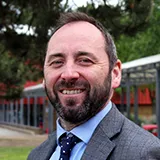We have now switched over to our new ParentPay system, where you’ll be able to add money for lunches, pay for school trips and manage your account. All students will be required to have an account set up by their parent/guardian.
Students can choose from 38 GCSE and vocational options in Year 9 to study in Year 10 and 11 alongside their core subjects. They are guided through this choices process via informative assemblies, a comprehensive Choices Booklet and one to one guidance interviews with staff members.
With recent, shocking, news headlines and national growing concern about some children’s use of the Internet and social media apps, a reminder that the Manchester Safeguarding Partnership have teamed up with Qustodio to offer all parents of children who attend a Manchester school free access to Q...
Welcome to the Autumn 2023 edition of 'Parrs Wood Pigeon', our Personal Development Newsletter.
Parrs Wood High School took part in a challenge for the charity Read for Good in association with Read Manchester, tasking Manchester schools to collectively read for one million minutes to unlock community book boxes and storytelling sessions for children in hospital.

Academy Headteacher
It is my great pleasure to welcome you to our website. Parrs Wood High School and Sixth Form is a culturally diverse and truly a comprehensive learning environment fit for the 21st century.
We expect all our students to achieve excellent outcomes, both academically and pastorally. We believe this combination will allow our students to make a positive contribution to society, regardless of background. Continue reading.
Staff are highly committed to the school and to the vision that has been created by senior leaders and governors.Ofsted Report 2019



We strive for excellence and are very proud of our achievements and affiliations.
If you believe something is missing or should be removed from the list below, please let us know.